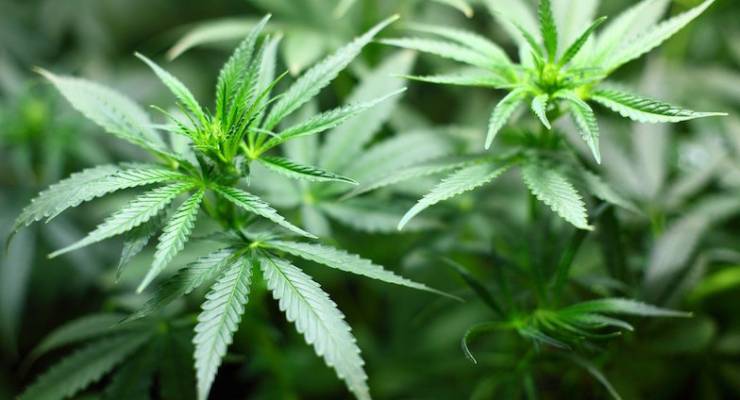
Australia’s ongoing bushfires have caused deaths, property damage, natural habitat destruction, and a devastating loss of wildlife. But there will be other less foreseeable effects too.
Crikey takes a look at some of the unexpected things that may emerge from our summer on fire.
More people turning to meth
Healthcare professionals may see a spike in methamphetamine and other drug use, following the destruction of cannabis crops in northern-NSW bushfires.
President of the Australian Drug Law Reform Foundation Dr Alex Wodak told Crikey that cannabis crops have “almost certainly” been destroyed in the bushfires, meaning “cannabis would become more scarce and prices would rise”.
It’s impossible to prove for certain whether users are turning to ice due to a market shortage of marijuana. As a spokesperson for NSW Police told Crikey, it’s not as though illegal cannabis-growers are going to report the loss of their crops to authorities.
But history does tell us that while some drug users will either stop using or use less of their preferred substance in the wake of a shortage, others will turn to other drugs. Wodak says that, during a heroin shortage in 2000, “much to many people’s surprise, people switched briefly to cocaine and then amphetamines”.
He mentions how people try to stick within the group of drugs with similar effects to their preferred drug (stimulants, depressants, hallucinogens etc), “but if they can’t get anything at the price they want in that group, they will switch to another group.”
Wodak points out that many people will simply stop taking drugs during the shortage, while noting that cannabis shortages have seen some users turn to meth before. “When cannabis production dropped in Hawaii when the US Airforce got rid of plantations on the island of Maui, Hawaii become the first significant part of the US with a substantial meth problem,” he said.
While Wodak predicts there will be a lag in the Australian cannabis market, “especially if the ground is destroyed by the fires and the cover [also] burnt”, he says the industry will recover — especially given “it is such a significant part of the drug economy”. It’s been estimated that in economic terms Australia’s cannabis market is about twice that of the wine industry.
Boycotts from ‘ethical travellers’
It’s been reported that Australia is set to lose $4.5 billion in tourist spending, as the number of international tourists booking trips has fallen 10-20 per cent.
Tourism Australia managing director Phillipa Harrison blames the drop on social media posts and international coverage that “has led to the incorrect view that all of Australia is on fire”.
But Australia may also start to see tourists avoiding trips down under in protest of the government’s climate change inaction.
University of Queensland Associate Professor Gabby Walters, who has been studying international celebrities’ coverage of the bushfire crisis, said celebrities have been very vocal about the role of climate change.
US film star Bette Midler, for example, took to Twitter to blast the prime minister:
Pity poor #Australians, their country is ablaze and their rotten @ScottMorrisonMP saying, ‘This is not the time to talk about climate change. We have to grow our economy’. What an idiot. What good is an economy in an uninhabitable country. Lead, you fuckwit!”
“If [these celebrities] are getting on the bandwagon about climate change, their kind of influence will definitely have an impact on [how their followers] feel,” Walters told Crikey.
“In terms of getting the message out there about how Australia doesn’t care about climate change, there has definitely been some damage done. Whether that will affect people’s decision to visit the country or not is a different thing.”
“If we look at northern Europe in particular, who are very environmentally conscious, they would possibly reconsider their trip [to Australia]. There is an increasing trend for tourists and consumers to make sort of green decisions. So there’s a change that our attitude towards climate change will affect our reputation … there will be people who say ‘I’m not going'”.
A river of dead fish
It’s estimated that hundreds of thousands of fish are dead after light rains washed ash from bushfires and sediment build-up from the prolonged drought into NSW rivers.
“Bushfire ash is made up of organic matter that supports rapid bacterial growth that quickly uses up oxygen in the water,” a NSW Primary Industries spokesperson explained to Crikey.
“Sudden drops in dissolved oxygen causes fish to suffocate or become very stressed. The combination of this material entering the waterway can cause black-water events, which can have localised impacts on native fish species. Aeration has very little influence on mitigating the impact of black-water type events, especially over large scales.
“This run-off is resulting in poor water quality and the increased likelihood of fish deaths.”
The risk of fish dying in bushfire-affected areas will continue until trees, shrubs and ground cover have the chance to grow back and block further material from entering waterways, according to the spokesperson.








Cannais is mostly rown hydroponically so I call S on Ale Wodak’s claims.
“cannabis would become more scarce and prices would rise”.
As if. The cost of cannabis hasn’t really gone up in 20+ years, I doubt this will have an impact. I suspect Alex Wodak doesn’t move in the same circles as I do though.
Agree with the first two comments. Also, with some slight varietal differences, cannabis maturation is influenced by day length (or more correctly night length). The impact of the loss of any outdoor crops is some time away.
Yes to previous comments. Effects of cannabis crop destruction in Hawaii is anecdotal, correlative rather than causative, affected by socio-economic issues peculiar to Hawaii unlikely to be replicated elsewhere.
The vast majority of cannabis users are unlikely to come into contact with a meth dealer, ever. It’s sounding like a modified “gateway drug” argument, which is also not true.